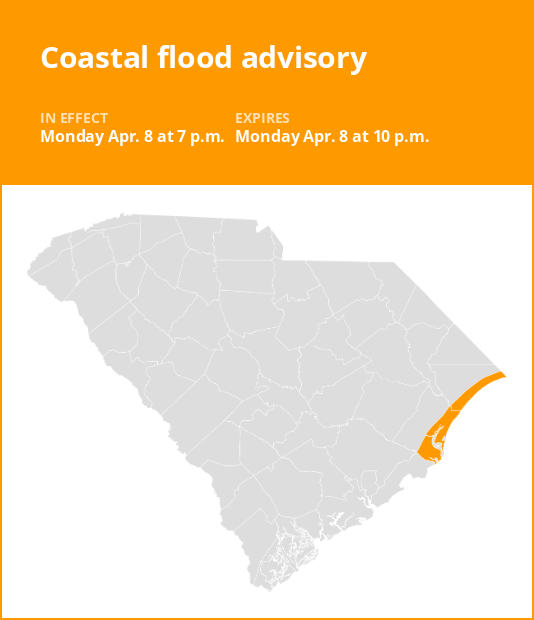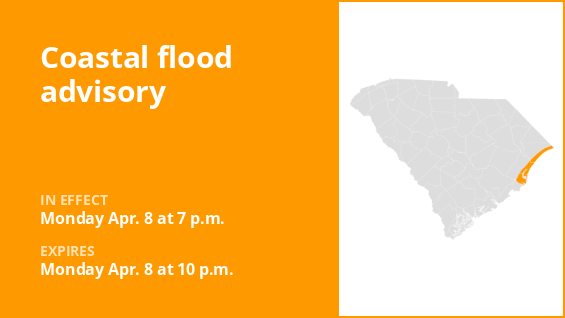The advisory was for Horry and Georgetown counties.
“The tide is falling and water levels have fallen well below flood stage. Therefore the coastal flood advisory has ended,” says the National Weather Service.
The advisory is in effect until 10 p.m.

Your guide to weather alerts: Advisories, Watches, and Warnings
Flash flood warning: Take action!
A flash flood warning is issued when a flash flood is either imminent or already occurring. In flood-prone areas, it’s crucial to move immediately to higher ground. A flash flood is a sudden and violent inundation that can develop within minutes to hours, and it can even happen in areas not currently experiencing rainfall.
Flood warning: Take action!
A flood warning is issued when flooding is imminent or occurring.
Flood advisory: Be aware:
A flood advisory is released when flooding is not expected to reach a severity level necessitating a warning. Nonetheless, it can still cause considerable inconvenience and, without exercising caution, potentially lead to situations that threaten life and/or property.
Flood watch: Be prepared:
A flood watch is issued when conditions are favorable for flooding. It does not mean flooding will occur, but it is possible.
Be flood-ready: Expert guidance from the weather service for your safety
In flood-prone regions or while camping in low-lying areas, understanding and following the weather service flood safety guidelines can be a lifesaver:
1. Seek higher ground:If you reside in a flood-prone region or are camping in low-lying terrain, the first step to safety is relocating to higher ground.
2. Adhere to evacuation orders:If local authorities issue an evacuation order, heed it promptly. Prior to leaving, secure your home by locking it.
3. Disconnect utilities and appliances:If time allows, disconnect your utilities and appliances. This reduces the risk of electrical hazards during flooding.
4. Steer clear of flooded basements and submerged areas:Steer clear of basements or rooms where water has submerged electrical outlets or cords. This helps prevent electrical accidents.
5. Swift evacuation for your safety:If you notice sparks or hear buzzing, crackling, snapping, or popping noises, evacuate immediately. Avoid any water that may be charged with electricity.
6. Stay away from floodwaters:Never attempt to walk through floodwaters, even if they appear shallow. Just 6 inches of fast-moving water can forcefully sweep you off your feet.
7. Seek high ground if trapped:In the event you become trapped by moving water, make your way to the highest point available and contact emergency services by calling 911.
When heavy rain occurs, there is a risk of flooding, particularly in low-lying and flood-prone regions. It is important to never attempt to drive through water on the road, regardless of how deep it appears. According to the weather service, as little as 12 inches of rushing water can sweep away most vehicles. Stay safe by being prepared and informed.







